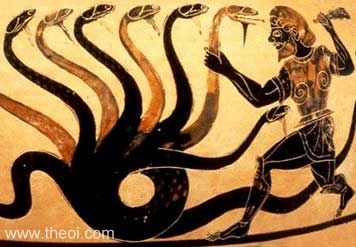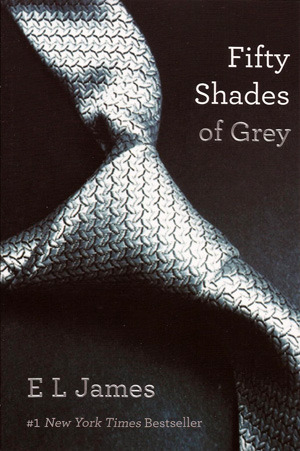Introduction
This series explores how the recent censorship episodes at
Goodreads and booksellers in England represent symptoms of the larger
upheavals roiling the publishing world. In particular I am looking at how
they each relate to what I will call ‘emerging genres,’ genres whose
standards and conventions, critical reception, distribution and a host
of other aspects are being actively negotiated and contested by a
community of “stakeholders”: authors, fans, reviewers, critics,
publishers, etc. Since I am both a writer and heavy reader of erotica
and its subgenre, M/M romance, I will use those as my primary lens for
analyzing the implications of these scandals.
As I said in my first piece, erotica’s
connection to the British scandal is self-evident. The connection to
Goodreads is less direct, but I think in the end more important. There
is nothing unexpected that booksellers stung by criticism that they sell
pornography would react impulsively by attempting to purge it from
their shelves. The Goodreads episode was not concerned with erotica at
all, and superficially the types of material censored seem quite narrow
in scope, but in fact its implications for those who care about erotica
or any emerging genre are far more sinister, and unlike the British
scandal there was nothing inevitable about it.
Controversy at Goodreads
With longstanding, ugly quarrels it can be very difficult for outsiders to get past the
he said/she
said aspects. The conflict that spawned this debacle is polarized enough by now that any pretense to
impartiality is impossible, and I am not going to spend time arguing "my
side." Though I have had no role whatsoever in this quarrel, I do think
the reviewers have the right of it. (For those interested in immersing
themselves in the details, I refer you to an excellent series of posts
on the blog
Soapboxing as well as the book
Off-Topic, discussed below.)
For
the purposes of my own argument, it is enough to know that a very
vitriolic conflict between authors and readers over negative reviews
mostly of YA books has been escalating for more than a year, drawing
negative press and the kind of attention social networking sites most
fear.
It is not chance that this conflict erupted over
YA, which along with erotica is one of the genres that has been most
popular with self-publishing authors. One of the fundamental facts of
life for those of us who self-publish is that reader reviews and
word-of-mouth are everything.
Now authors getting a wee
verklempt about bad reviews is nothing new (though brownies help—as do tequila shots). What is new is how crucial
reader
reviews are to sales, and how visible they are. The moment a Goodreads
review is posted, it is accessible worldwide by the site's 20 million
users. As if that weren't enough, booksellers like Kobo (and now Amazon
on certain Kindles) also post Goodreads reviews on the book page
for buyers to see.
Goodreads'
Author Guidelines strongly
warn authors never to respond to negative reviews, but authors don’t
always realize or don’t care, and some have gone after “bully” reviewers for
sabotaging their careers, even resorting to tactics like "doxing,"
tracking down and posting real names and addresses for hostile
adversaries to see. Readers on Goodreads began keeping track of these authors and
slapping with the “Badly Behaving Author” label, which can be very
damaging since the tag tends to go viral on the site, and many Goodreads
users make a point of never buying any book by a BBA.
Goodreads' Response
Given
the publicity and acrimony surrounding these fights and their threat to
the reputation and actual functioning of Goodreads, it was not
surprising that the site’s management felt they had to intervene—which
they did on September 20 with the following announcement:
[Goodreads
will] Delete content focused on author behavior. We have had a policy
of removing reviews that were created primarily to talk about author
behavior from the community book page. Once removed, these reviews would
remain on the member’s profile. Starting today, we will now delete
these entirely from the site. We will also delete shelves and lists of
books on Goodreads that are focused on author behavior.
There
are a lot of reasons this was a problem. The policy itself as worded is
nonsensical. As people have pointed out, does the prohibition on
discussing “author behavior” apply to reviews of
Mein Kampf? Does
their insistence that "books should stand on their own merit" mean we
cannot discuss Orson Scott Card’s very public anti-gay statements when
reviewing
Ender’s Game? (For an excellent survey of how banning discussion of author behavior "
ignores all of postmodern literary criticism," see Emma Sea's
Why Goodreads New Review Rules Are Censorship.)
Far more baffling was that Goodreads would come down
so decidedly on the authors’ side, when according to their own
guidelines any author involved in a conflict with a reviewer is
de facto
guilty of inappropriate conduct. Because management has said nothing
about their thinking, users have been left to fear the worst: that the
decision represents the first stage in a larger shift by Goodreads,
which is now owned by Amazon, away from reviewing and the free exchange
of ideas towards a bottom-line prioritizing of selling books and
advertising.
Whether those fears are grounded or not,
it simply staggers that a site devoted to book
lovers could conclude that the best way to quell rancor and controversy
was through censorship of one side. It is no surprise that the result
was an explosion of anger and protests that has drawn in users who would
never be at risk of having a shelf or review deleted, and risks yet
more attention from the media. And here’s where I’d like to back up my
claim in the
previous essay on how management’s decision represents a serious failure to understand the mentality of the site’s users.
A Community of Stakeholders
As
far as the economics of publishing today goes, there are two crucial
types of reader: the first is the old-style consumer whose book
purchases are based on the best-seller lists or recommendations by
mass-media organs of varying degrees of prestige. It is no stretch to
say that these buyers pay the salaries of traditional establishment
publishing.
Then there is our second type of reader,
the one who is driving the new publishing paradigm. This reader is a
passionate and voracious consumer of an emerging genre dominated by
self- and indie publishing. Because there are no professional reviews,
and often no agents, editors, or publishers to decide on a book’s
merits, that role falls to the readers. Many of them read 100, 200, 500
books a year in their genre. They are not just fans, but taste-makers,
and ultimately authorities—because there aren’t any others. Most heavy
readers of erotica and M/M fall into this category—as do many of
Goodreads’ most active reviewers.
When you first join
Goodreads, the site appears to work like Facebook—indeed, it invites you
again and again to duplicate your FB friend list on the site. That
suggests the creators conceived of it as a place for actual, real-world
friends to exchange book recs and post the occasional review. And for
our first type of reader, that is probably all that is needed or wanted.
But for the second type of reader, Goodreads serves
as the primary meeting place for what I earlier termed the stakeholders
of an emerging genre. To take a conspicuous example, the
M/M Romance reader group,
one of the largest on the site with more than 12,000 members, justly
advertises itself as “The #1 resource on the web for M/M fiction.”
Beyond providing dozens of fora for readers to talk books or meet
authors, the group also organizes innovative publishing events including
an incredibly popular one where readers suggest a story line which any
author is free to take up. Readers get hundreds of free stories that
they had a hand in creating, while authors get exposure, a chance to
experiment, and the good will of the community. The M/M group organizers
are powerful players in their own right, and work tirelessly along with
bloggers, authors, and readers to help develop this genre.
For
these users, Goodreads is infinitely more than
Facebook-with-books-instead-of-pictures-of-the-kids. It is a
professional and creative space, and the key meeting place for their
community. For them, the autocratic and boneheaded nature of
management’s decision is deeply disturbing, especially in the light of
Amazon’s acquisition of the site. Management’s move seems geared towards
casting users more in the passive role of our first type of reader. It
is not paranoid to say that this familiar type of reader is infinitely
preferred by the traditional publishing establishment. It is the second
type who is revolutionizing the industry, rendering obsolete all the old
axioms on who matters, what succeeds, and how you make money.
The Part with the Tentacles

Goodreads
has itself in part to thank that this second type of reader has found
her voice. After the site’s managers announced the new policy on
September 20, users immediately organized protests, dubbed hydra
reviews, which went viral. When those were censored, the protesters put
together a collection of essays,
Off Topic: The Story of an Internet Revolt,
which was published on November 3 with no restrictions on distribution.
In the four days since it went live, hundreds of users have shelved or
reviewed the book, and a write-in campaign has started to nominate the
book for the Goodreads Choice Award.
Whether this new
reader will continue to find a home on Goodreads is impossible to know.
What is clear is that she will never again be satisfied with the role of
passive consumer of other people’s taste.


